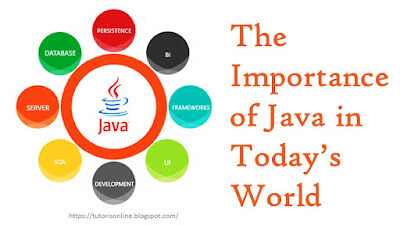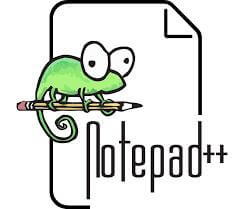Articles
☘ What Is Game Development?
☘ What is Game Development programming?
☘ Which languages need to learn for Game Development programming?
☘ Which softwares need to use for Game Development?
☘ Essential Tools for game development
☘ Game development using Java programming
☘ Game development using Python
☘What Is Game Development?

Game development is the process of creating video games or games for other platforms such as mobile devices, consoles, or PC. Game development involves a team of professionals including game designers, programmers, artists, animators, audio engineers, and others who work together to create games that are entertaining, engaging, and challenging for the players. The game development process typically involves several stages such as game design, prototyping, coding, testing, and publishing.
Game development is a complex process that requires a variety of skills and expertise. Game designers are responsible for coming up with game concepts, mechanics, and storylines. Programmers are responsible for coding the game using programming languages such as C++, C#, or Java. Artists and animators are responsible for creating visual elements such as characters, environments, and special effects. Audio engineers are responsible for creating sound effects and music for the game.
Game development is a rapidly growing industry, with a wide range of job opportunities available to those with the necessary skills and expertise. Game developers may work for large game development studios or may work independently as freelance developers or small development teams. The game development industry is constantly evolving, with new technologies and trends emerging all the time, making it an exciting field for those interested in game development.
☘What is Game Development programming?
Game development programming refers to the process of creating the code that powers video games or games for other platforms. Game programming involves writing software code that controls the game's behavior, mechanics, and interactions with the player. Game developers use programming languages such as C++, C#, Java, or Python to create the code that makes up the game. Game programming is a complex process that requires a deep understanding of software engineering concepts and programming languages. Game programmers must have expertise in areas such as game physics, artificial intelligence, graphics programming, and networking. In game development, programming is used to implement the game mechanics, such as the movement and behavior of characters, the physics of the game world, the interaction between objects, and the game logic that determines how the game responds to player actions. Game programming is an essential part of the game development process, and it requires a collaborative effort between the programming team and other members of the game development team, such as designers, artists, and audio engineers. Successful game programming requires a combination of technical expertise, creativity, and problem-solving skills.
☘Which languages need to learn for Game Development programming?
There are several programming languages that are commonly used in game development. The choice of language depends on the platform on which the game is being developed, the game engine being used, and the specific requirements of the game. Some of the most popular languages used for game development programming include: 1. C++: C++ is a high-performance language that is commonly used for game programming because of its speed and efficiency. Many game engines, such as Unreal Engine and Unity, use C++ as their primary programming language. 2. C#: C# is a popular language for game development because of its ease of use and flexibility. It is the primary language used in the Unity game engine. 3. Java: Java is a popular language for mobile game development because of its platform independence and flexibility. It is commonly used to develop games for Android devices. 4. Python: Python is a popular language for game development because of its ease of use and rapid development capabilities. It is commonly used to develop casual and indie games. 5. JavaScript: JavaScript is commonly used in web-based game development because of its compatibility with web browsers and its ease of use. These are just a few of the languages commonly used in game development. There are many other languages that can be used depending on the specific needs of the game and the platform on which it will be developed.
☘Which softwares need to use for Game Development?
There are various software tools and game engines that game developers use to create video games. The choice of software depends on the game platform, game genre, and the game development team's preferences. Some of the popular software and game engines used in game development include: 1. Unity: Unity is a popular game engine that is used to create 2D and 3D games for a variety of platforms, including mobile, console, and PC. 2. Unreal Engine: Unreal Engine is another popular game engine that is used to create high-end games with advanced graphics and physics capabilities. 3. GameMaker Studio: GameMaker Studio is a user-friendly game development tool that allows developers to create 2D games without much coding knowledge. 4. Adobe Creative Suite: Adobe Creative Suite includes a range of software tools that game developers use to create graphics, animations, and sound effects for their games. 5. Autodesk Maya: Autodesk Maya is a 3D modeling and animation software that is used to create characters, environments, and other visual elements in games. 6. Blender: Blender is a free and open-source 3D modeling and animation software that is used by game developers to create visual elements for their games. 7. Visual Studio: Visual Studio is an integrated development environment (IDE) that is used by game developers to write, debug, and test code for their games. These are just a few examples of the software and game engines used in game development. The choice of software and tools depends on the specific needs of the game development project.
☘Essential Tools for game development
There are various tools that are essential for game development, and the choice of tools depends on the game platform, game genre, and the game development team's preferences. Some of the essential tools for game development include: 1. Game engines: Game engines are software frameworks that provide the tools and functionality for building games. They often include features such as graphics rendering, physics simulation, and audio processing. Popular game engines include Unity, Unreal Engine, and Godot. 2. Integrated Development Environments (IDEs): IDEs are software applications that provide a complete environment for writing, debugging, and testing code. Popular IDEs for game development include Visual Studio, Eclipse, and Xcode. 3. 3D modeling and animation software: Game developers use 3D modeling and animation software to create characters, environments, and other visual elements in their games. Popular software tools include Autodesk Maya, Blender, and 3ds Max. 4. Text editors: Game developers often use text editors to write code outside of an IDE. Popular text editors include Visual Studio Code, Sublime Text, and Atom. 5. Version control systems: Version control systems are used to manage changes to the game's codebase, assets, and other files. Popular version control systems include Git, SVN, and Mercurial. 6. Sound and music creation software: Game developers use sound and music creation software to create sound effects and music for their games. Popular software tools include Ableton Live, FL Studio, and Logic Pro. 7. Debugging and profiling tools: Debugging and profiling tools help developers find and fix bugs and optimize game performance. Popular tools include Visual Studio Debugger, Unity Profiler, and Xcode Instruments. These are just a few examples of the essential tools for game development. The choice of tools depends on the specific needs of the game development project.
☘Game development using Java programming
Game development using Java programming is possible, and there are several game engines and libraries that support Java game development. Java is a popular programming language that is known for its platform independence, which means that Java games can run on multiple platforms without the need for platform-specific code. Here are some game development libraries and engines that support Java: 1. JavaFX: JavaFX is a Java-based framework for building rich, cross-platform applications and games. 2. LibGDX: LibGDX is a cross-platform game development framework that supports Java, with features such as 2D and 3D rendering, physics, and input handling. 3. jMonkeyEngine: jMonkeyEngine is a Java-based game engine that supports 3D graphics, physics simulation, and networking. 4. LWJGL: Lightweight Java Game Library (LWJGL) is a Java library for creating games and multimedia applications that run on Windows, Linux, and macOS. 5. Slick2D: Slick2D is an easy-to-use game development library for Java, with support for 2D graphics, input, and sound. In addition to these game engines and libraries, Java game developers often use IDEs such as Eclipse and NetBeans for development and version control tools such as Git for source code management. Java game development also requires knowledge of game design principles, object-oriented programming, graphics rendering, and game physics. Game developers using Java may also need to have experience with tools such as Blender or Maya for 3D modeling and animation, depending on the type of game they are creating.
☘Game development using Python
1. Introduction to Python Game Development: This module covers an introduction to game development and why Python is a suitable language for game development. It also covers the basic concepts of game design, game engines, and libraries. 2. Basic Python Programming: This module covers the basics of Python programming, including data types, control statements, loops, methods, and classes. 3. Game Development Libraries and Frameworks: This module covers the different game development libraries and frameworks available for Python, such as Pygame, PyOpenGL, and Panda3D. Students will learn about the features and advantages of each library and framework. 4. Game Design and Development: This module covers the principles of game design and development, such as game mechanics, game architecture, and game engines. Students will also learn how to create 2D and 3D games using Python. 5. Graphics Programming: This module covers the basics of graphics programming in Python, including how to create and manipulate images, shapes, and text. Students will also learn how to use Python graphics libraries, such as Pygame and PyOpenGL, to create game graphics. 6. Game Physics: This module covers the principles of game physics, such as collision detection and response, gravity, and object movement. Students will also learn how to use physics engines, such as PyBullet, for game development. 7. Sound and Music in Game Development: This module covers how to create and incorporate sound effects and music into games using Python libraries such as Pygame. 8. Advanced Python Programming: This module covers advanced Python programming concepts, such as threading, networking, and serialization. Students will learn how to use these concepts to create multiplayer games and to save and load game data. 9. Project Development: In this module, students will work on a game development project using Python. They will apply the skills and concepts they have learned throughout the course to create a complete game.
☘ The Importance of Java in Today’s World
☘ Why should every programmer learn C?
☘ Top Companies that Use Java
☘ Computer Programmer's Skills
☘ Open source general purpose free and feature rich code editors for Mac and Windows
☘ Why learning R?
☘ What are main features of OOP?
☘ What is the difference between declaration and definition of a variable/function?
Other Blog Articles
View Courses
☘The Importance of Java in Today’s World

☘12 explanations why dependence of java will stay from the longer run

☘Why should we still learn C/C++?
☘Why should every programmer learn C?
There are advantages to learning C first over more high-level programming languages (like C++ and Python). When you work with languages like Java, C#, and even Python, you immediately start moving away from learning the fundamentals of a programming language and you start learning associated libraries and frameworks. But with C you get a few library calls, you stay focused on the semantics of the language longer, and C often forces you to think harder and deeper about what’s happening under the hood.
Many programmers are frustrated with and leaning away toward the C/C++ programming languages because ....
Many people joined the programming world by learning C or C++, but it’s rare for them to keep learning and mastering these two languages well because they get frustrated in handling the low-level programming elements such as pointers, the memory storage model, address alignment, templates expansion, multi-thread data races, and so on. If these elements are not handled properly, the app will have a high probability of crashing, which will frustrate the new programmer.
Nowadays we have many advanced programming languages like Java, C#, Python, JavaScript, etc for application development and it seems insane if someone wanted to develop a Web application or back-end service in pure C/C++. The common application areas have been taken over by more advanced programming languages.

☘Top Companies that Use Java
There is a majority of companies such as Uber, Pinterest, Google, Instagram, Spotify, Netflix, Airbnb, etc. that use Java in their tech stack. We have listed some companies or organizations and their projects. It will help you to decide which programming language you have to choose for the next project.
NASA Word Wind
NASA Word Wind is the project of an independent agency of the U.S. federal government NASA. It is a fully 3D virtual globe that provides geographic information. It uses imagery and aerial photography received from the NASA satellite and builds 3D models of the planets.
It is an open-source proprietary software written in Java and supports all operating systems. In this project, the OpenGL API is used to provide 2D and 3D graphics that interact with the graphics processing unit. It also shows the data in real-time by using the GPS plugin such as displaying clouds, hurricanes, earthquakes, etc. Using this application, we can search for locations by geographical names, set visible layers and viewing angles, and much more.
Netflix
Netflix is one of the most popular and largest US entertainment companies that provide movies and TV shows on streaming multimedia. Most of the applications of Netflix is developed using Java. With a slight mixture of C++, android and android TV applications are almost build in Java.
Spotify
Spotify is an online audio streaming service that uses Java to implement the functionality of its web application. For example, log and stabilize, and data transfer. The android application of Spotify uses Java.
Minecraft
Minecraft is a famous computer game that is written in Java. The Minecraft Java edition comes with Java 1.8 and Minecraft used it by default.

☘Computer Programmer's Skills :
As with many other fields, computer programmer skills can be grouped into hard and soft skills. “Hard skills” refer to measurable abilities that are developed over time through practice or study. “Soft skills”, on the other hand, are abilities that enable people to fit into a working environment or work effectively with others.
Here are some of the most important skills to have as a computer programmer:

☘Open source general purpose free and feature rich code editors for Mac and Windows
Notepad++ is a free and open source code editor for Windows. It is easy to use for beginners and highly powerful for advanced users. It comes with syntax highlighting for many languages including PHP, JavaScript, HTML, and CSS. It also comes with a built-in FTP plugin that allows you to connect to your server and edit files directly without leaving the editor.
Eclipse is an open source community whose projects are focused on building an extensible development platform, runtimes and application frameworks for building, deploying and managing software across the entire software lifecycle.

☘Why learning R?
R is free and powerful programming language for statistical computing and data visualization.

☘What are main features of OOP?
Encapsulation :-
Encapsulation is referred to one of the following two notions.
Polymorphism :-
Polymorphism means that some code or operations or objects behave differently in different contexts. In C++, following features support polymorphism.
Compile Time Polymorphism: Compile time polymorphism means compiler knows which function should be called when a polymorphic call is made. C++ supports compiler time polymorphism by supporting features like templates, function overloading and default arguments.
Run Time Polymorphism: Run time polymorphism is supported by virtual functions. The idea is, virtual functions are called according to the type of object pointed or referred, not according to the type of pointer or reference. In other words, virtual functions are resolved late, at runtime.
Inheritance :-
The idea of inheritance is simple, a class is based on another class and uses data and implementation of the other class. The purpose of inheritance is Code Reuse.

☘What is the difference between declaration and definition of a variable/function?
Declaration of a variable/function simply declares that the variable/function exists somewhere in the program but the memory is not allocated for them. But the declaration of a variable/function serves an important role. And that is the type of the variable/function. Therefore, when a variable is declared, the program knows the data type of that variable. In case of function declaration, the program knows what are the arguments to that functions, their data types, the order of arguments and the return type of the function. So that’s all about declaration. Coming to the definition, when we define a variable/function, apart from the role of declaration, it also allocates memory for that variable/function. Therefore, we can think of definition as a super set of declaration. (or declaration as a subset of definition). From this explanation, it should be obvious that a variable/function can be declared any number of times but it can be defined only once. (Remember the basic principle that you can’t have two locations of the same variable/function).